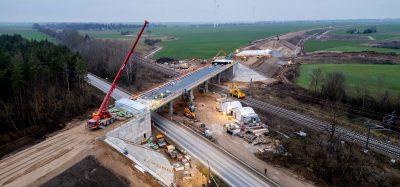CER General Assembly endorses new set of policy priorities
Posted: 22 February 2019 | Global Railway Review | No comments yet
It will be on the basis of this policy agenda that the CER will engage with commissioners and members of the European Parliament during 2019.


The Community of European Railway and Infrastructure Companies (CER) held its bi-annual General Assembly in Brussels, addressing the association’s policy agenda for the years 2019-2024, which was unanimously endorsed by the participating CEO’s.
The rail sector plays an important role in the EU economy, with 2.3 million EU citizens directly and indirectly employed and a Gross Value Added (GVA) of €149 billion. This is one of the reasons why CER decided to inaugurate the upcoming legislature with a clear policy agenda, containing both sectoral self-commitments as well as requests for ever-better accompanying policies.
The CER’s five commitments are to continue the digital transformation of processes and services; stress customer orientation; offer carbon-free rail operations in Europe by 2050; engage in a deeper reflection on possible sources of funding beyond the still-necessary public ones; and look beyond continental traffic, aiming to further strengthen Eurasian transport operations by implementing high-frequency rail connections between Europe and Asia.
Consistent action is requested from the institutional stakeholders and the European railway sector recommended policies:
- That must foster the role of rail as the backbone of a sustainable European transport and economy
- That ensure a stable regulatory environment in the rail sector
- That must redress current regulatory unbalances between transport modes.
It was highlighted that further policy measures are needed in order to disclose rail’s true potential, including:
- Measures to promote digitalisation, research and innovation
- Adequate funding for technological upgrades of infrastructure and rolling stock
- A complete internalisation of negative externalities for all modes of transport
- Measures to catch the opportunities offered by trans-continental freight flows
- Measures to redress the intermodal playing field under the fiscal aspect
- The aspect of consumer protection and of working conditions.
CER Chair, Crister Fritzson, said: “What is achieved during the next five years in terms of EU policy and related actions will be crucial for our ability to break the negative trend of climate change. The railway sector is prepared to make the necessary commitments, but we clearly need help also from policy and decision makers in getting the right framework conditions and incentives in place for the transportation sector as a whole. We think that our agenda should really be the reference baseline in this regard, hoping that it is sufficient, but of course we welcome more ambitious efforts. We look forward to an open and constructive dialogue.”
CER Executive Director, Libor Lochman, said: “We are proud of this agenda, which sets firm sector commitments and the political framework we need. Together with the European institutions we have done a lot, but any reflection on the next EU policy agenda has to consider the impact of new available technologies, the needs of our citizens and the fact that we cannot give up in the fight against climate change. Rail can be the EU’s silver bullet when it comes to greening mobility.”
Related topics
Related organisations
Community of European Railway and Infrastructure Companies (CER)








